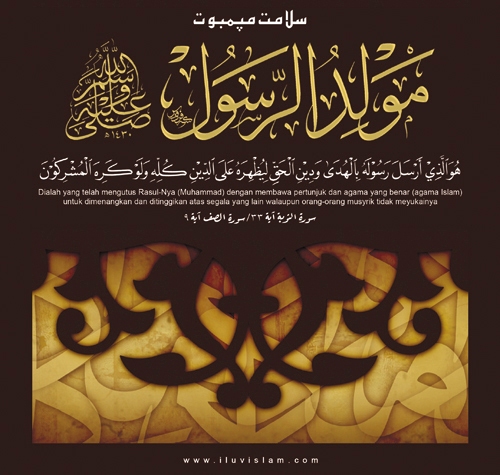
I received a quite considerable comments on my previous posting. I'm not against any physical exercise but what I would like to stress and further giving meaning to the numbers of research in this area is that prayer or solah can provide relaxation. How? Allow me to explain.
During Solah, we read certain verses of the quran i.e., surah fatihah and the dua's during ruku', sujud etc. There are short du'as and long du'as plus the surahs. This is done in a repetitive manners. These repetition generates exclusive breathing pattern. We attune our breathing pattern to match the length of surahs or du'as that we recite. In completing reciting the du'as in sujud and ruku's for example, we used four seconds or at the count of four. Try it. It is an average of four seconds. In psychotherapy, during relaxation techniques, psychologists teach their clients to breath in and out at the count of four or four seconds. Slowly to breath in, hold it for four seconds and breath out in the counts of four. Slowly yet steadily, the client will feel relaxed and rested.

Muslims pray five times a day. Each prayer takes approximately 5-6 minutes each which could be totalled up 25-36 minutes a day. What do scientists suggest people to do daily. Exercise 30 mins a day keeps the doctor away!!In a study, the researchers analyzed data from 18 controlled studies that investigated the effects of aerobic fitness training on cognitive ability in women and men ages 55-80. They found that exercise had clear but selective benefits (Psychological Sciences, March 2003).
The researchers also found that exercising less than 30 minutes per session had very little impact on cognitive function. Previous studies which I have reported earlier, showed that prayers resonate the frontal, temporal, and parietal regions of the brain. The tissues affected are crucial to memory, learning, and cell communication.
The question is since the prayers are full of benefits but why muslims are so lacking, and so backward? Answers..Allah said...Wa fi anfusikum..afala tubsirun...One might look at the quality of the prayer. Is our prayer is at its highest quality? Wallahu a'lam.




